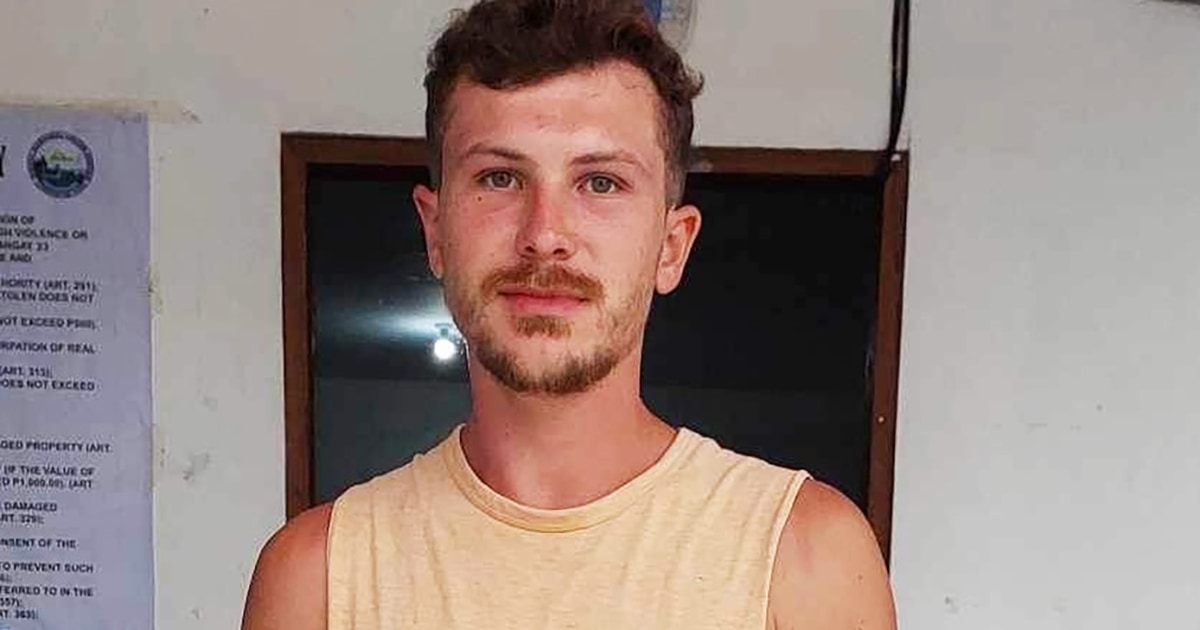MANILA, Philippines — Police in the Philippines said Wednesday that they had arrested three suspects in the kidnapping of an American in the country’s south and that they believe the victim, who was shot in the leg during the abduction, is still alive.
Two of the suspects in the Oct. 17 kidnapping of Elliot Onil Eastman, 26, in Sibuco town in Zamboanga del Norte province surrendered separately and pointed to a third suspect, who was arrested in Sibuco, police officials said.
Three other suspects, who may be holding Eastman, have been identified, police said, adding that more people could be involved. Criminal complaints of abduction were filed against the six suspects on Tuesday.
“We believe he is alive, so our operations are ongoing,” regional police spokesperson Lt. Col. Helen Galvez told The Associated Press by telephone. “Our search won’t stop until we locate him.”
A house-to-house search was underway in one unspecified area, Galvez said without elaborating. She added that the suspects belonged to a criminal group and not to any of the armed Muslim rebel groups, which have been blamed for a spate of ransom kidnappings in the southern Philippines over decades.
The kidnappers were armed with M16 rifles and disguised themselves as police officers. One of them shot Eastman in the leg when he tried to escape then dragged him to a motorboat and fled, according to the first police reports of the abduction seen by the AP, citing a witness.
Two empty casings of M16 ammunition and blood stains were seen by investigators in Sibuco, where Eastman had been living for about five months before he was kidnapped, Galvez said.
Eastman, from Vermont, traveled out of the Philippines and recently returned to attend the graduation of his Filipino wife. He has been posting Facebook videos of his life in Sibuco, a remote and poor coastal town, where the suspects spotted him, Galvez said.
“He was confident. He was the only foreigner there,” according to Galvez.
Although authorities said the ransom kidnapping was isolated in the relatively peaceful region, it was a reminder of security problems that have long hounded the southern Philippines, the homeland of a Muslim minority in the largely Roman Catholic nation.
The southern third of the Philippines has bountiful resources but has long been hamstrung by stark poverty and an array of insurgents and outlaws.
A 2014 peace agreement between the government and the Moro Islamic Liberation Front, the largest of several Muslim separatist groups, has considerably eased widespread fighting in the south. Relentless military offensives have weakened smaller armed groups like the violent Abu Sayyaf group, over the years, considerably reducing kidnappings, bombings and other attacks.
The Abu Sayyaf group had targeted American and other Western tourists and religious missionaries, most of whom were freed after ransoms were paid. A few were killed, including an American, Guillermo Sobero, who was beheaded on the island province of Basilan, and a U.S. missionary, Martin Burnham, who was killed while Philippine army forces were trying to rescue him and his wife, Gracia Burnham, in 2002 in a rainforest in Sirawai town near Sibuco.

